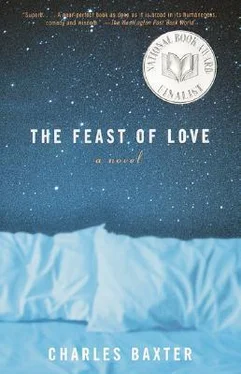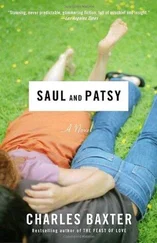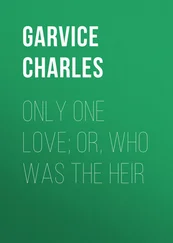And here, he said, lugging out a larger canvas from behind the others, is a different sort of picture. In my former style. He placed it before us.
Until that moment I had thought the boy, our neighbor, a dim bulb. This painting was breath-snatching. What’s this called? I asked him.
I call it The Feast of Love, Bradley said.
In contrast to his other paintings, which appeared to have been slopped over with mud and coffee grounds, this one, this feast of love, consisted of color. A sunlit table — on which had been set dishes and cups and glasses — appeared to be overflowing with light. The table and the feast had been placed in the foreground, and on all sides the background fell backward into a sort of visible darkness. The eye returned to the table. In the glasses was not wine but light, on the plates were dishes of brightest hues, as if the appetite the guest brought to this feast was an appetite not for food but for the entire spectrum as lit by celestial arc lamps. The food had no shape. It had only color, burning pastels, of the pale but intense variety. Visionary magic flowed from one end of the table to the other, all the suggestions of food having been abstracted into too-bright shapes, as if one had stepped out of a movie theater into a bright afternoon summer downtown where all the objects were so overcrowded with light that the eye couldn’t process any of it. The painting was like a flashbulb, a blinding, cataract art. This food laid out before us was like that. Then I noticed that the front of the table seemed to be tipped toward the viewer, as if all this light, and all this food, and all this love, was about to slide into our laps. The feast of love was the feast of light, and it was about to become ours.
Esther sighed: Oh oh oh. It’s beautiful. And then she said, Where are the people?
There aren’t any, Bradley told her.
Why not?
Because, he said, no one’s ever allowed to go there. You can see it but you can’t reach it.
Now it was my turn to scratch my balding head. Bradley, I barked at him, this is not like your other paintings, this is magnificent, why do you hide such things?
Because it’s not true, he said.
What do you mean, it’s not true? Of course it’s true if you can paint it.
No, he said, still looking fixedly at his creation. If you can’t get there, then it’s not true. He looked up at me and Esther, two old people holding hands in our neighbor’s basement. I’m not a fool, he said. I don’t spend my time painting foolish dreams and fantasies. Once was enough.
I could have argued with him but chose not to.
And with that, he picked up the painting and hid it behind the silly ugly dumbbells growing like acorns on psychotic trees.
WHAT A STRANGE YOUNG MAN, Esther said, tucked in next to me several hours later, sleepy but sleepless in the dark. Her nightgown swished as she tossed and turned. He seems so nondescript and midwestern, harmless, and then he produces from the back of his basement a picture that anyone would remember for the rest of their lives.
Oh, I said, you could say it’s imitation Matisse or imitation Hockney. Besides, I said, light as a subject for contemporary paintings is passé.
You could say that, Esther whispered, but you wouldn’t, and if you did, you’d be wrong.
She gave me a little playful slap.
I only said that you could say that, not that you would.
You didn’t actually say it.
No. Not actually.
Good, Esther said. I realized that she was agitated. I turned to her and rubbed her back and her neck, and she put her hands on my face. I could feel her smiling in the darkness. I could feel her wrinkles rising.
Harry, she said, it was a recognition for me, a moment of beauty. How strange that a wonderful painting should be created by such a seemingly mediocre man. Our neighbor, living in the Dybbuk House. How strange, how strange. Then she sighed. How strange, she said again.
Then the phone rang.
Don’t answer it, Esther quickly said. You mustn’t. Don’t, dear, don’t, don’t, don’t.
No, I must, I told her. I must.
I PICKED UP THE TELEPHONE RECEIVER and said, Hello? From across the continent, on the West Coast, my son Aaron began speaking to me. In a voice tireless with rage he cursed me and his mother who lay beside me. Once again I was invited to hear the story of how I had ruined his life, destroyed his soul, sacrificed him to the devils and angels of lost ambition. In numbing fashion he found words to batter my heart. Indictment: I had expected more of him than he could achieve. Indictment: I had had hopes for him that drove him, he said, insane. Indictment: I was who I was. Crazy, sick, and inspired with malice, he described his craziness and his sickness in detail, his terrible impulses to hurt others and to hurt himself, as if I had not heard this story many times before, several times, innumerable times. Razors, wire, gas. He called me, his father, a motherfucker. He told me that he did not want me to be his father anymore. Then he broke down in tears and asked for money. Demanded money. From the nothingness and everlasting night of his life, he demanded cash. I, too, was weeping with sorrow and rage, holding the earpiece tightly to my head so that not a word would escape to Esther. Cupping my hand around the mouthpiece, I asked him if he had hurt anyone, if he had hurt himself, and he said no, but he was thinking about it, he planned every single minute in advance, he planned monstrous personal calamities, he needed help, he would ask for help, but first he had to have money now, this very minute, my money, superhuman quantities of it. Don’t make me your sacrificial lamp, he said, then corrected himself, sacrificial lamb, don’t you do that now, not again. I said, against my better judgment, that I would see what I could do, I would send him what I had. He seemed briefly calm. He breathed in and out. He pleasantly wished me good night, as if at the conclusion of an effective performance.
To have a son or daughter like this is to have a portion of the spirit shrivel and die, never to recover. You witness the lost soul of your child floating out into the ethers of eternity. Ethics is a dream, and tenderness a daytime phantasm, lost when night comes. Esther and I, eyes open, held each other until dawn broke. My darling wept in my arms, our hearts in ruin. We live in a large city, populated only by ourselves.
Kafka: A false alarm on the night bell once answered — it cannot be made good, not ever.
ONCE I HAD BRADLEY THE DOG returned to his rightful owner (myself), I saved a bit of money for a down payment-actually, I was doing pretty well, financially — and moved out of my basement apartment into a white clapboard house next door to Harry and Esther Ginsberg, who became my friends and neighbors. Everything I owned fit into one small moving van. I brought the dog, and my easels, my paint tubes, my paintings, and every other worldly possession that I thought was fit to survive, and I found places for them where they seemed comfortable. I was the only entity in that house that didn’t have a place to be. Bradley had his back room and his dog bed, the paintings had the basement, the clothes had their closet, the clock had its wall, the audio system had its shelves. I roamed around the house trying to figure out my proper location. But I couldn’t get comfortable anywhere, including the bedroom, and finally I decided not to worry and just to go on being relaxed and uncomfortable and myself. After all, I was a single, recently divorced man. I was both a problem and a solution.
A MAN LIVING ALONE is a king of sorts, but unfortunately only one minute at a time, and his kingdom is remote and typically unvisited and small, with few comforts. Moodiness and solitude are the order of the day. It’s easy to control moods and the king’s solitude as long as there is a royal project, a scheme, or narcotic drugs left over from root canal, but the drugs eventually run out.
Читать дальше
Конец ознакомительного отрывка
Купить книгу












